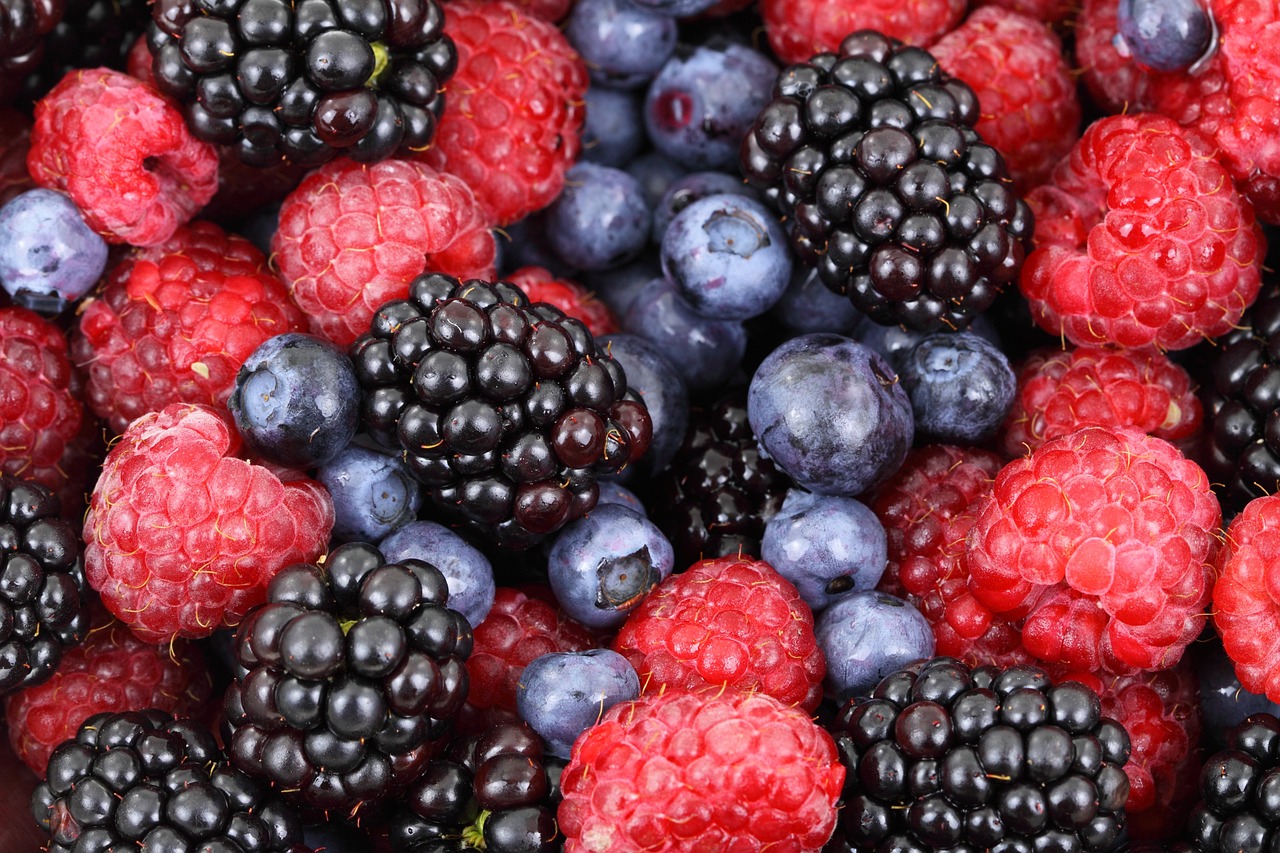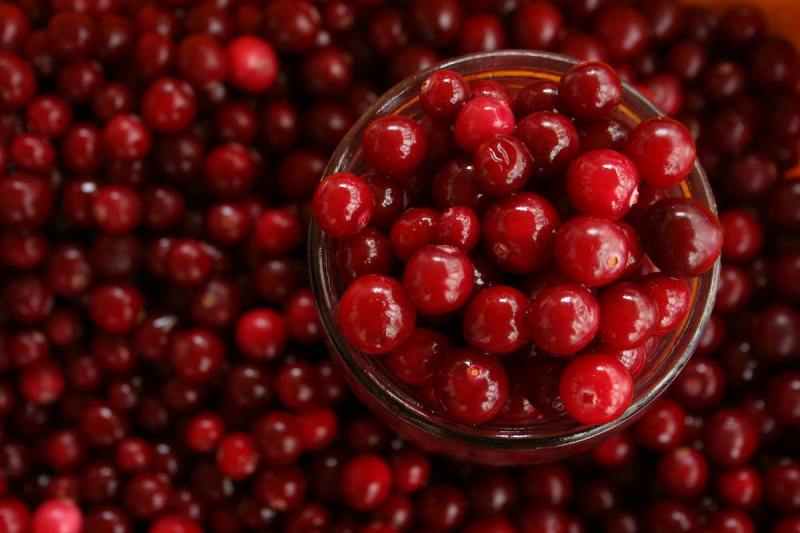
Almost everyone enjoys eating berries. They’re delicious and add a lovely sweetness to most dishes, especially in the morning or as an afternoon snack. They also come with a variety of health benefits. Some types of berries are even better than the rest and come with an extra supply of vitamins and fiber.
Other berries act like protective shields for your blood cells. Thanks to their high antioxidant content, they have more strength and power than other fruits and vegetables.
Let’s explore the best berries to include in your diet and why they’re so important.

Strawberries
Strawberries provide you with vitamin C and, along with it, antioxidants and immune-boosting benefits. Vitamin C increases collagen, which is necessary for healing wounds, and helps your body absorb iron from other fruits and veggies.
Regularly eating strawberries can offer other benefits, such as improved blood vessels, lower blood pressure, and healthier levels of cholesterol. When you eat strawberries with yogurt or cottage cheese, you also help your body maintain normal blood sugar levels through proper insulin resistance.

Blackberries
Sprinkle some blackberries in your oatmeal every morning, or just eat them plain. You’ll enjoy higher anthocyanins and polyphenols, and these beneficial plant compounds may reduce the risk of certain cardiovascular and neurodegenerative diseases.
Blackberries add more fiber to your diet, so you’ll feel fuller for longer. Fiber also supports gut health and can help with better weight control management. You’ll also get more manganese, vitamin C, copper, and vitamin K. This helps boost your immune system and energy levels while building healthier connective tissues and blood vessels.

Raspberries
Raspberries contain high amounts of anthocyanin and ellagitannins, antioxidants that may help you reduce unhealthy cholesterol levels, abdominal fat, blood pressure, and blood sugar levels.
Just a few raspberries in your favorite summer dessert or fruit salad give you high amounts of vitamin C, manganese, fiber, and copper. This supports better vision and healthy digestion. Raspberries also provide reliable energy boosts, especially in the middle of the day.

Blueberries
Blueberries contain higher amounts of plant compounds like anthocyanins that naturally give them their dark blue color but also protect your cells, fight off harmful germs, and lower inflammation throughout your body.
According to several studies, adding blueberries to your diet can help keep your heart strong, prevent type 2 diabetes, and sharpen your brain. After snacking on these dark blue berries, you may find it easier to lose weight because you’re not overeating as much. They may also protect against macular degeneration, an age-related eye disease.
Blueberries are rich in vitamin K, which can help improve bone health and blood clotting.
Additionally, blueberries are also high in manganese, a mineral involved in energy production and protecting blood cells from damage.

Goji berries
Goji berries, small red berries used traditionally in Chinese medicine for over 2,000 years, have been known to improve vision, kidneys, and liver health.
These berries, usually sold dried in the U.S., contain the highest amount of zeaxanthin, a natural pigment found in red, yellow, and orange fruits and vegetables. It serves as a protective shield for your eyes against the effects of harmful light and oxidation. Therefore, goji berries may reduce eye problems like macular degeneration and glaucoma.
They’re also full of vitamin A, which benefits your immune system, heart, lungs, and other vital organs.

Acai berries
Acai berries, native to Central and South America, come from the acai palm plant or tree, and you’ll find numerous beneficial compounds throughout the plant’s pulp, skin, fruit, and seeds.
Due to their short shelf-life and distance from their native habitat, acai products can’t be purchased fresh in the United States. That’s why acai is sold in frozen form, so you can include it in a fruit smoothie or juice for a sweet, delicious, and healthy treat.
Acai products can benefit your good cholesterol and vascular function, as well as reduce tinnitus (ringing in the ears) and blood sugars. A good source of fiber, vitamin C, vitamin A, vitamin K, and vitamin E, acai products are best consumed without any added sugars.

Cranberries
Very few people enjoy raw cranberries. They’re tart and off-putting. However, cranberries are delicious as a juice, dried fruit, or a side dish sauce at Thanksgiving. Studies also show that their rich polyphenol content may positively impact human health in many ways.
Cranberries contain antibacterial properties that have long been proven to treat bladder and urinary tract infections. Gynecologists all over the world suggest urination after sex, along with a glass of cranberry juice, to prevent such illnesses.
Cranberries have also been linked to a lower risk of cardiovascular and kidney diseases as well as diabetes. Additionally, thanks to vitamins C and K, you may want to add dried cranberries to your cereal every morning if you suffer from rheumatoid arthritis, certain dental diseases, and or digestion issues.

Grapes
Grapes, by themselves or mixed with cheese and nuts, are a delicious snack any time of the day. We don’t think of them as berries, but they are botanically a berry of genus Vitis and family Vitaceae. Their high levels of resveratrol mean they also have antioxidant and anti-inflammatory actions.
Grapes come with manganese and vitamin K. They can strengthen your immune system, manage some kinds of heart disease, and reduce weight.

Mulberries
Mulberries, genetically similar to blackberries and loganberries, taste a lot like grapefruits. They are juicy, fleshy, succulent, and, most importantly, delicious. Related to figs and breadfruits, mulberries are sweet and mild. Most people eat them plain in fresh or dried forms.
Mulberries come in clusters from the silkworm tree and have the potential to lower your risk of cancer, cholesterol, and blood sugar issues. This is because they provide unusually high levels of protein and iron for a fruit, as well as vitamin C, fiber, calcium, and antioxidants.



